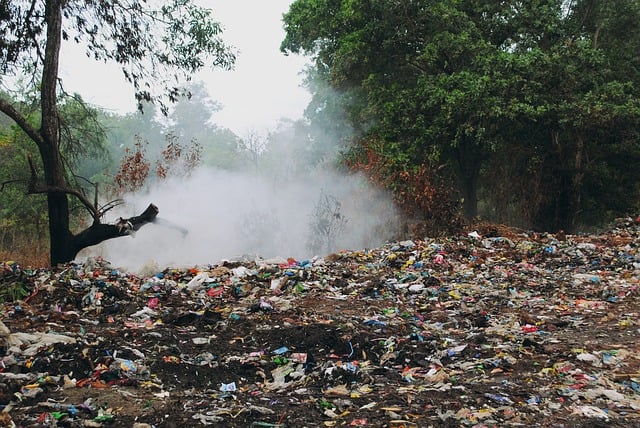
Everything You Need To Know About Illegal Dumping In Australia 🚯
Illegal Dumping 🚯: In many places, it is, unfortunately, the norm now to see piles of garbage cluttered on the streets, forests, long roads, and in hidden, illegal dumping sites. We people now find it an environmental problem that needs to be solved. Additionally, it can have adverse effects on wildlife as much as humans. Let me walk you through the blog for you to comprehend more.
>Download Now: Free PDF Business Owners Guide To General Waste Bin Services
A bit about Waster
Before we continue our topic on illegal dumping, let me share with you more information about Waster.
We here at Waster provide you with innovative solutions for your and your business’s waste management and recycling needs. Furthermore, we provide flexible, 30-day contracts instead of the typical lock-in contracts, which proves to be better.
Click on the blue button to learn more.
READ: Compaction Of Solid Waste 🚮
All about illegal dumping
This practice, considered unlawful, causes so much harm to the environment. I, for one, condemn anyone who does this. Additionally, there are already designated areas – called landfills – assigned to take in all sorts of rubbish. And with proper waste management systems, too. So I cannot fathom why illegal dumping sites exist. And mind you, the illegal dumping statistics are growing higher and higher, mainly due to an increase in waste levies. An excerpt from our past blog states that “The Local Government New South Wales (LGNSW) stated that since the implementation of the waste levy, there have been increasing findings of illegal landfills. Due to the increasing price of the waste levy, some find it better to do illegal means to alleviate the costs of dumping waste to landfills.”
Nonetheless, we will discuss every aspect of it in order to understand more and hopefully counter this unlawful process.
Why do people dump illegally?
Before we look at the adverse effects it brings to the environment, we must first see what its causes of it are. Below, we state the following causes:
Causes
- There is so much waste. Obviously, generating so much waste means more space is consumed in a landfill. As a result, people resort to dumping their waste in non-designated areas, instead. Additionally, we should also factor in the growing population and consumerism (see blog on effects of consumerism on the environment) the environment faces today. New stuff nowadays tends to break more easily and does not last long, in contrast to how items were made in the past. As a result, more items are discarded and end up in a landfill. And when landfill space is no longer available, they find ways to dump trash one way or another – even creating illegal dumping sites.
- People want to avoid disposal fees. Households, though to a much lesser extent than commercial businesses, generate a big amount of waste. Due to poverty, some residents from around the world dump their trash in illegal sites to avoid disposal fees. For them, collection fees are too hefty to pay. As a result, they think the best way to dispose of their trash is to dispose of it themselves.
- They do not see the importance of it. As there are many people who understand the importance of waste disposal and management, there are also some who simply do not. Some do not see the need for recycling and practising proper waste disposal, so this results in them illegally dumping waste. Additionally, even if they know what they are doing is a crime, they still do so with the hopes of avoiding detection and punishment.
What adverse effects does it bring?
“For every action, there is an equal and opposite reaction,” this might sound familiar to you. That’s right, what I stated is Newton’s third law of motion. The same holds true in waste management. For every illegal dumping site that comes, there also comes a negative effect on the environment and the like. Here, I share with you the adverse effects of the illegal dumping of rubbish:
Effects
- It harms the environment. First and foremost, the one taking the full brunt of illegal dumping sites is obviously the environment. Leaving all kinds of trash in the ground threatens the soil and water. It makes the soil infertile and can also cause groundwater pollution, depending on the type of trash dumped. Illegal dumpsites, unlike frequently treated landfill, are unsanitary because of no one there treating the waste. As a result, it contaminates everything that surrounds it.
- It pesters wildlife. We suggest that you also read our blog on wildlife-protected areas. Some animals mistake trash for food and eat them. As a result, they fall ill and become an easy target for predators. But unfortunately, they might die first due to eating trash like plastic before even getting eaten by predators. Additionally, they also encounter mild inconveniences like trash blocking their way, etc. It also disrupts the ecosystem flow, attracting different kinds of species not native to the area, like flies and raccoons, who are known to loiter around areas full of trash in search of food.
- It causes disasters. So much trash going into illegal dumpsites can increase the chances of natural disasters occurring. For example, rubbish containing ethanol, methane, and the like can cause fires all of a sudden because of their flammability. Another example of a natural disaster occurring is when plastics – or any other type of trash – block water from going into the sewage system, therefore causing flash floods.
How to avoid illegal dumping
In recent news, a Wenvoe recycling boss disposed of 10,000 tonnes of waste illegally. Anthony Gaughan, the boss of Wenvoe Recycling Ltd, caused flooding and contaminated the water supply of about 32,000 people due to him illegally dumping controlled waste. This caused the Cardiff Crown Court to punish him for his reckless actions. Furthermore, his actions led to a clean-up action costing 380,000 pounds. It resulted in him being imprisoned for eight months, his company suspended for 2 years, and a 10-day rehabilitation activity he has to complete.
How to report illegal dumping sites in Australia
This just goes to show that there are illegal dumping laws in all parts of the world, Australia included. As a concerned citizen, you can report illegal dumping cases if you ever see one. Unfortunately, illegal dumping sites in Australia still do exist in this day and age.
According to the NSW government, here is what you should do in case you encounter illegal dumping cases in NSW:
“Regardless of whether the land is public or private, illegal dumping is a crime and should be reported. Note as many details of the incident as possible, including time, date, location, descriptions of the people involved, vehicles and number plates and anything else noticed.”
If it is a non-emergency situation, then you should do the following:
- Contact the Environment Protection Authority at any time.
By phone: 131 555
By email: info@environment.nsw.gov.au
Report online -
Contact the NSW Police Assistance Line (131 444) If the act of illegal dumping has caused intentional damage to personal property.
-
Contact NSW Crime Stoppers if the caller has information about offenders who have committed the act of illegal dumping.
By phone: 1800 333 000
Online: Crime Stoppers report form -
Contact the agency responsible for regulation.
If illegal dumping occurs in … |
report to: |
|
EPA
Report online or use Report to EPA from your mobile. |
|
local council |
|
local council or park trustee |
Special thanks to the NSW EPA for the provided information.
And if the threat is imminent:
“Call 000 if the incident presents an immediate threat to human health or property, such as toxic fumes or a large chemical spill. Fire and Rescue NSW, the NSW Police and the NSW Ambulance Service are the first responders, as they are responsible for controlling and containing incidents.”
Abusers of the law are subjected to hefty illegal dumping fines, as stated by the NSW EPA:
On-the-spot fines for illegal dumping
- $7500 on-the-spot fine for individuals, if issued by the EPA ($4000 otherwise)
- $15,000 on-the-spot fine for corporations, if issued by the EPA ($8000 otherwise)
Strict liability waste dumping offences
- Maximum penalty for an individual: $250,000 and, in the case of a continuing offence, a further daily penalty of $60,000
- Maximum penalty for a corporation: $1,000,000 and in the case of a continuing offence, a further daily penalty of $120,000
Willful or negligent disposal of waste causing actual or likely harm to the environment
- Maximum penalty for an individual: $1,000,000 and/or 7-year prison sentence for wilful offences; $500,000 and/or 4-year prison sentence for negligent offences
- Maximum penalty for a corporation: $5,000,000 for wilful offences; $2,000,000 for negligent offences
Illegal dumping: conclusion
No matter the reason, illegal dumping is bad. Not only does it harm the environment and wildlife, but it also costs so much to clean it up – and it all comes from the people’s purses. Practise following the law and take into heart proper waste disposal and management practices.
Waster: things you need to know
If you’re looking for recycling bins, check our waste recycling shop and find the best deals in terms of pricing and services.
Also, please call 1300 WASTER (1300 927 837), or email us at enquiries@waster.com.au if you have any further questions.
Leave a Reply Cancel reply

Product categories
Most Popular Posts
-
Commercial Waste Management Services: Reduce Waste Collection Costs! 🚍
-
Medical Waste Disposal: Everything You Need To Find Out In 2024! 💉
-
Rubbish Removal Sydney 2024: Better Bin Collections For Business ✅
-
Clinical Waste Disposal 2024: What To Know About Business Clinical Waste ⚕️
-
Secure Document Destruction 2024: All About Security Bins Shredding 🔒
-
Free Cardboard Recycling 2024: Can I Get Free Cardboard Collection? 📦
-
Confidential Paper Disposal Bins 2024: What You Need To Know About Shredding! 🔒
-
Recycling Bins Australia 2024: Recycling Can Boost Your Profits! ♲
-
Commercial Wheelie Bin Collection: What Businesses Need To Know In 2024 🗑️
-
Commingled Recycling 2024: Why Commingled Bin Is Key To Recycling 🍾













